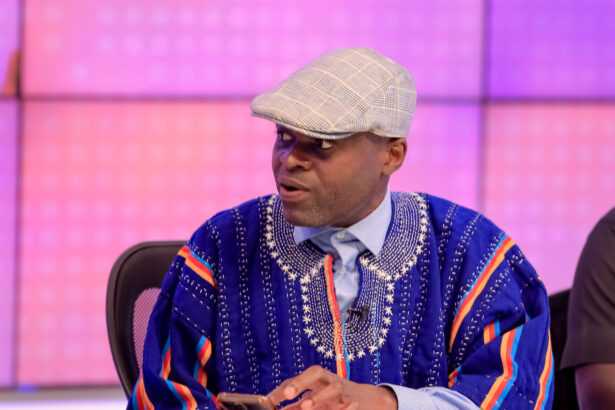Martin Kpebu, a private legal practitioner in Ghana, has recently voiced significant concerns regarding the apparent timidity of citizens in addressing political and social injustices. His remarks come at a crucial time when public dissatisfaction with the government is mounting, particularly in the wake of the Supreme Court’s controversial decision to reverse Speaker Alban Bagbin’s declaration that the seats of four Members of Parliament should be vacated. Kpebu emphasizes that many Ghanaians have become passive, allowing the government led by President Akufo-Addo to operate above the law, unchallenged and without repercussions for their actions. He articulated this sentiment during a recent appearance on the television program Key Points, where he lamented the lack of public outcry, suggesting that in any other country, such governmental misconduct would have sparked widespread protests.
Kpebu’s commentary draws a stark comparison between Ghana and other nations, citing recent instances in countries like Sri Lanka, where citizens actively took to the streets to express their grievances against the government. He expressed frustration at the complacency displayed by Ghanaians, suggesting that their reluctance to protest or voice dissent allows political leaders to act with impunity. The fear of repercussions for speaking out against injustice has cultivated an environment where many citizens choose silence over civic engagement. Kpebu’s assertion that rights are not merely given, but must be actively fought for, resonates with a growing desire among Ghanaians for accountability from their leadership.
The legal practitioner’s remarks also touch on a deeper psychological barrier within the populace. Many Ghanaians feel apprehensive about voicing their concerns due to the potential danger it poses to their safety. Kpebu articulated this fear poignantly, stating that people often witness wrongdoing but refrain from speaking up because they are afraid for their lives. This fear has significant implications for the fabric of democracy, as it inhibits open dialogue and the necessary challenges to authority that are critical for a healthy political system. The rightful anger and frustration among citizens could potentially serve as a powerful catalyst for change if channeled into meaningful action.
Kpebu likened the current climate of fear and passivity to the Biblical story of Judas Iscariot, suggesting that betrayal and confrontation of wrongdoing, while challenging, are necessary for progress. He implied that without action and accountability, a society risks perpetuating cycles of injustice. His comments reflect a broader frustration within Ghana, where citizens are increasingly demanding transparency and accountability from their leaders. This growing discontent echoes a collective yearning for civic engagement and a more significant role in the political landscape, transcending individual fear and hesitation.
Kpebu’s statements resonate with many Ghanaians who share similar frustrations regarding the government’s decisions and actions. As citizens grapple with economic challenges and perceived injustices, there seems to be a growing awareness of the importance of active participation in governance. The call for a more engaged citizenry is becoming louder, as more individuals are questioning the status quo and the sacrifices they must make to ensure their rights are recognized and upheld. The desire for reform and accountability could be the driving force toward fostering a more assertive and participatory political culture in Ghana.
In conclusion, Martin Kpebu’s critique of the Ghanaian populace serves as a rallying cry for citizens to break free from their perceived timidity. His call to action emphasizes the importance of civic engagement, accountability, and the need for individuals to confront political and social injustices head-on. As discontent with the current political climate grows, the potential for significant change hinges on the willingness of Ghanaians to overcome their fears and advocate for their rights. The path to a more just and equitable society is fraught with challenges, but the courage to demand better governance and uphold the rule of law is essential for fostering a vibrant democracy in Ghana.














